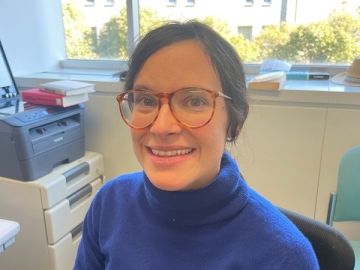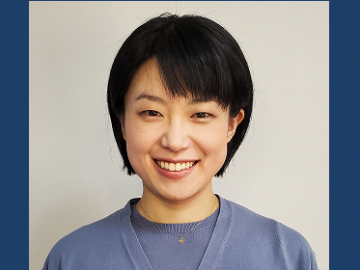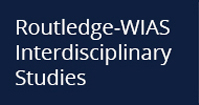
A personal desire to solve social problems with mathematics
I have liked mathematics since I was a high school student. For my university study of mathematics, rather than enrolling in a science department to tackle the problems of natural science, I chose Waseda’s Faculty of Political Science and Economics because I was interested in social issues. In a lecture on game theory there, I got to know that I could actually solve social problems using mathematics. Since then I have been studying game theory continuously.
So far I have been conducting research focusing on theoretical aspects of fair allocation methods. However, I became convinced that it is also important to apply mathematical theory to the solution of real-world social problems. An example of such application is a study in which I used game theory to analyze the social issue related to people who apply for a place in a daycare center with the aim of being rejected. I started working on that problem because of an article I read in a newspaper one day. When I saw the headline, I thought that I could apply game theory to the solving of that problem.
A policy comparison
A big issue for working parents is whether or not they can leave their children at the daycare of their choice. In the case of licensed daycare centers run by local governments, the local government allocates daycare placements to parents on the basis of the parents’ wishes and care priorities—so the more popular a center is, the harder it is to enter. However, there are parents who apply for popular centers with the aim of not being selected. In other words, the parents aim for being “rejected” by a daycare center.
The motivation to aim for rejection is this: usually parents can take paid childcare leave until the child becomes one year old, but there are cases where paid leave can be extended until the child becomes two years old. To extend their childcare leave, parents need to obtain a certificate indicating that they applied for a daycare center but failed to be selected. Some parents, wishing to extend their childcare leave until their child becomes two years old, increase their chances of getting the necessary certificate by applying for a daycare center that is unlikely to select them.
This creates a situation where not only parents who actually want daycare, but also parents who wish not to be selected, are applying for the same center. This has various repercussions, such as increased workload at the local government offices that allocate places in daycare centers; unfair allocation processes; and difficulty collecting accurate data on daycare desirability.
The central government is responding to the “aim for rejection” problem by asking parents who apply to indicate the intensity of their desire to place their child in the daycare—and if the parents indicate weak desire, the government lowers the priority for assigning them childcare.
On the other hand, local governments have a policy of allowing parents to extend their childcare leave period without a certificate.
I performed game-theoretic analysis to determine which of the above policies is a more effective response to the “aim for rejection” problem.
Game-theoretic modeling of a complicated reality to solve a problem
Game theory, a tool of microeconomics, mathematically analyzes the choices made by each player in a situation where the strategies of competing players affect the other players’ interests. In the context of daycare allocation, I examined the actions that parents would take under both central government and local government policy. Specifically, I searched for “equilibrium” in which all parents have the best strategy for competing with the other parents. In that state of equilibrium, the larger the overall benefit (i.e. the larger the number of parents whose desire is realized), the better the policy (although this analysis did not take some issues into account, such as increased burden of childcare leave payments if extension of leave were admitted upon request).
The analysis demonstrated mathematically that for both groups (parents who actually want to enter the daycare center; and parents who are aiming to fail to enter the daycare center) the local government policy is better than that of the central government. This result is significant in that the outcome is based on a rational analysis, rather than on intuition. I feel that this outcome is a valuable assessment of the central government and local government policies.
Future research
In my research I spend more time working alone in my office than in discussion with other researchers. I am always thinking about some issue, since my research dominates my thoughts. On the other hand, I always try to keep an eye on the outside world, since there are various social problems that can be approached with game theory, as in the case presented here.
I aim to proceed with research on the application of game theory methods to the problem of allocation of indivisible commodities, by extending existing discrete mathematics theory and applying it to actual social problems. It would be gratifying if that work were useful both to society and for the development of theoretical knowledge.
Interview and composition: Keisuke Iida
In cooperation with: Waseda University Graduate School of Political Science J-School










